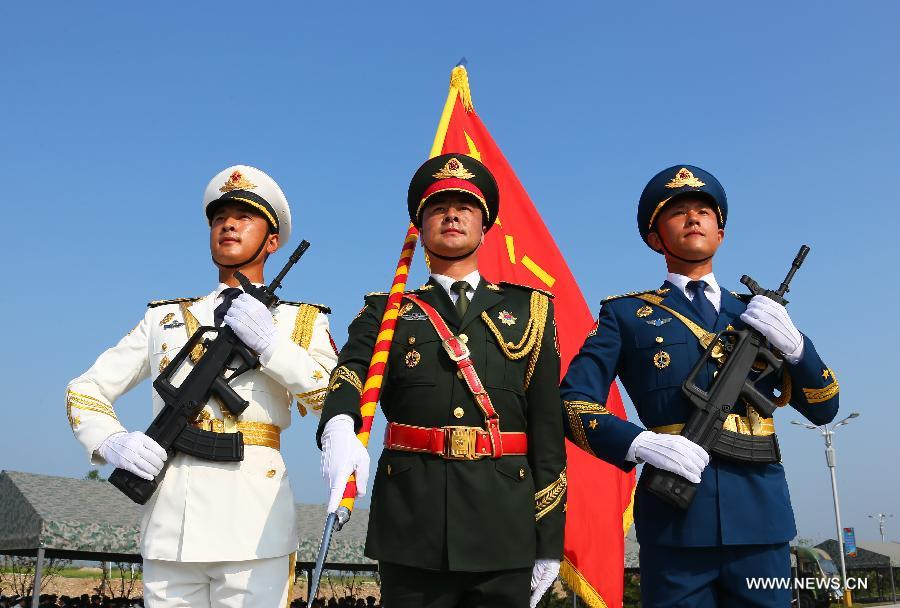A Victory Parade for China and humanity
- By John Ross
 0 Comment(s)
0 Comment(s) Print
Print E-mail China.org.cn, August 31, 2015
E-mail China.org.cn, August 31, 2015
|
Soldiers take part in a training for a military parade in Beijing, capital of China, Aug. 12, 2015. China will hold a grand military parade on Sept. 3 to mark the 70th anniversary of the victory of the Chinese People's War of Resistance Against Japanese Aggressions and the World Anti-Fascist War. [Xinhua/Zha Chunming] |
On September 3, China will stage a Victory Parade commemorating the Chinese People's War of Resistance Against Japanese Aggression and China's contribution to the World War against fascism. This is a solemn day for China and an opportunity for the world to better understand events that are not only historical in character but without which today's world cannot be comprehended.
World War II is sometimes thought of as two separated conflicts, one against Japan in Asia and another against Fascism in Europe. This is false. The two were linked by China which played a strategically decisive role in both.
As China's relation to the European war is least understood it will be analyzed first. The core of Europe's conflict was Nazi Germany's attack on the USSR. Germany never committed less than two thirds, often three quarters, of its military forces to this. In three decisive battles the Nazi army's backbone was crushed – Moscow in 1941, Stalingrad in late 1942 and early 1943, and Kursk in summer 1943. From the summer of 1943, the USSR launched a permanent offensive culminating in Berlin's capture. Europe's liberation was achieved by the sacrifice of 27 million Soviet dead. The D-Day landing in June of 1944 in France was not the war's decisive event, as Hollywood pretends, but a late blow kicking down part of an already defeated Nazi structure.
A decisive strategic reason for this Soviet victory lay in China. The key strategic question of Europe's war was why Japan did not attack the USSR from the East simultaneously with the Nazi's attack from the West? If Japan had done so, even the Soviet people's extraordinary heroism might have been unable to achieve victory and at best would have required still greater sacrifices.
China determined this situation. In the summer of 1939 Soviet forces defeated an incursion by 80,000 Japanese troops at the battle of Khalkhin Gol. From then on, Japan understood war could only be waged against the USSR with the full weight of its armed forces – hundreds of thousands or millions of troops. This was impossible, as China's full-scale ferocious resistance against Japan's invasion since July of 1937 had tied down the overwhelming bulk of Japan's army. Japan was forced to negotiate the Japanese-Soviet Non-aggression Pact. The scale of the Chinese people's resistance against Japan therefore had a decisive effect even on the European theatre of the war.







Go to Forum >>0 Comment(s)